44 start with S start with S

Placing both novels at the historical intersection of modern consumer culture and older religious discourse on materialism and identity, Sarah Way Sherman analyzes how Alcott and Wharton rework traditional Protestant discourse to interpret their heroines' struggle with modern consumerism. Her conclusion reveals how Little Women's optimism, still buoyed by otherworldly justice, providential interventions, and the notion of essential identity, ultimately gives way to the much darker vision of modern materialistic culture in The House of Mirth.
Hardcover is un-jacketed.
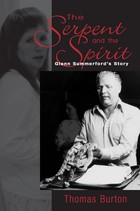
“A snake handler convicted of the attempted murder of his wife by means of serpent bite is serving ninety-nine years in prison. The reader is gradually pulled into an increasingly complex story as Thomas Burton allows the many individuals involved in this event to tell their stories. Readers are less likely to find themselves concerned with what “really” happened than with larger issues they too will become involved in. this is more than a story about the headline ‘preacher tries to murder wife – with rattlesnakes!” it is a story of individuals struggling with their faith and their fate under the steady gaze of their God.” —Ralph W. Hood Jr., winner of the American Psychological Association’s William James Award in the psychology of religion
In this comprehensive, multilayered set of narratives, the story of Glenn Summerford’s fall from grace is told by its participants, through interviews, court documents, and other primary sources. Free of either prejudice against or romanticizing about the snake-handling Holiness religion, this book presents an absorbing story of a fascinating group of people, while allowing the reader to draw his or her own conclusions about Summerford’s guilt or innocence. The Serpent and the Spirit is a startling commentary on truth and its representation, religion and its expression, humanity and its flaws.
Thomas Burton is professor emeritus of English at East Tennessee State University. He is the winner of the Appalachian Consortium Laurel Leaves Award.
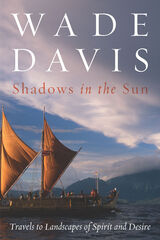
Wade Davis has been called "a rare combination of scientist, scholar, poet and passionate defender of all of life's diversity." In Shadows in the Sun, he brings all of those gifts to bear on a fascinating examination of indigenous cultures and the interactions between human societies and the natural world.
Ranging from the British Columbian wilderness to the jungles of the Amazon and the polar ice of the Arctic Circle, Shadows in the Sun is a testament to a world where spirits still stalk the land and seize the human heart. Its essays and stories, though distilled from travels in widely separated parts of the world, are fundamentally about landscape and character, the wisdom of lives drawn directly from the land, the hunger of those who seek to rediscover such understanding, and the consequences of failure.
As Davis explains, "To know that other, vastly different cultures exist is to remember that our world does not exist in some absolute sense but rather is just one model of reality. The Penan in the forests of Borneo, the Vodoun acolytes in Haiti, the jaguar Shaman of Venezuela, teach us that there are other options, other possibilities, other ways of thinking and interacting with the earth." Shadows in the Sun considers those possibilities, and explores their implications for our world.
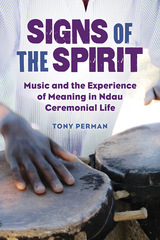
Perman's encounters with the spirits, the mediums who bring them back, and the accompanying rituals form the heart of his ethnographic account of how the Ndau experience ceremonial musicking. As Perman witnessed other ceremonies, he discovered that music and dancing shape the emotional lives of Ndau individuals by inviting them to experience life's milestones or cope with its misfortunes as a group. Signs of the Spirit explores the historical, spiritual, and social roots of ceremonial action and details how that action influences the Ndau's collective approach to their future. The result is a vivid ethnomusicological journey that delves into the immediacy of musical experience and the forces that transform ceremonial performance into emotions and community.
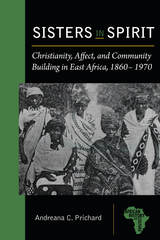
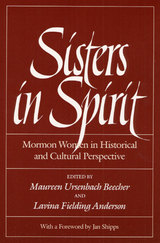
"The women who contributed to this book are among the best of the Mormon literati . . . [they] hold that there is hope within the church for change, for reform, for expansion of the place of women." -- Women's Review of Books
"Historians of women in America have a great deal to learn from the history of Mormon women. This fine set of essays provides an excellent introduction to a subject about which we should all know more." -- Anne Firor Scott, author of Making the Invisible Woman Visible.

Song Noir examines the formative first decade of Tom Waits’s career, when he lived, wrote, and recorded nine albums in Los Angeles: from his soft, folk-inflected debut, Closing Time in 1973, to the abrasive, surreal Swordfishtrombones in 1983. Starting his songwriting career in the seventies, Waits absorbed Los Angeles’s wealth of cultural influences. Combining the spoken idioms of writers like Kerouac and Bukowski with jazz-blues rhythms, he explored the city’s literary and film noir traditions to create hallucinatory dreamscapes. Waits mined a rich seam of the city’s low-life locations and characters, letting the place feed his dark imagination. Mixing the domestic with the mythic, Waits turned quotidian, autobiographical details into something more disturbing and emblematic, a vision of Los Angeles as the warped, narcotic heart of his nocturnal explorations.
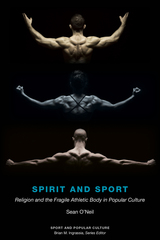
In Spirit and Sport: Religion and the Fragile Athletic Body in Popular Culture, Sean O’Neil studies the intersectionality of religion and disability as it exists within contemporary sports. To do so, he calls to the forefront various contemporary stories about trauma and disability—some fictional, others biographical—and examines how we tell and interpret these stories within the frameworks of athletic activity, competition, failure, and success. O’Neil studies a wide range of perspectives, from John Irving’s A Prayer for Owen Meany and the big-screen’s Signs to the experiences of real-life athletes like Tim Tebow, Muhammad Ali, and Bethany Hamilton. Woven throughout his examination of each is a consideration of religious belief and practice, especially within Christianity, as it relates to athletic ability—the lighthearted stories of victory and overcoming, the inspiring triumph over fragility and limitation so often couched in religious terms.
O’Neil’s study draws upon his experiences as a hospital chaplain and his own battle with skin cancer. By blending personal experience with sociological observation, O’Neil argues that the intersection of religion, sports, and disability in popular culture is a revealing site of cultural struggle over competing myths, identities, and values related to the body—both the physical bodies we inhabit as well as the broader social bodies to which we subscribe.
Spirit and Sport is a study with broad appeal: from O’Neil’s autoethnographic storytelling to the wide range of narrative media he examines, religious scholars, sports historians, and general audiences alike are sure to find it a thought-provoking and engaging read.
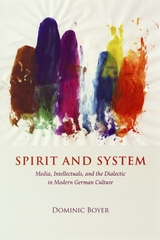
Boyer analyzes the creation and mediation of the social knowledge of "German-ness" from nineteenth-century university culture and its philosophies of history, to the media systems and redemptive public cultures of the Third Reich and the German Democratic Republic, to the present-day experiences of former East German journalists seeking to explain life in post-unification Germany. Throughout this study, Boyer reveals how dialectical knowledge of "German-ness"—that is, knowledge that emphasizes a cultural tension between an inner "spirit" and an external "system" of social life —is modeled unconsciously upon intellectuals' self-knowledge as it tracks their fluctuation between alienation and utopianism in their interpretations of nation and modernity.
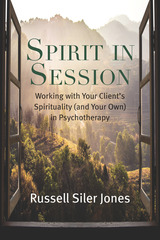
Spirituality is an important part of many clients’ lives. It can be a resource for stabilization, healing, and growth. It can also be the cause of struggle and even harm. More and more therapists—those who consider themselves spiritual and those who do not—recognize the value of addressing spirituality in therapy and increasing their skill for engaging it ethically and effectively.
In this immensely practical book, Russell Siler Jones helps therapists feel more competent and confident about having spiritual conversations with clients. With a refreshing, down-to-earth style, he describes how to recognize the diverse explicit and implicit ways spirituality can appear in psychotherapy, how to assess the impact spirituality is having on clients, how to make interventions to maximize its healthy impact and lessen its unhealthy impact, and how therapists can draw upon their own spirituality in ethical and skillful ways. He includes extended case studies and clinical dialogue so readers can hear how spirituality becomes part of case conceptualization and what spiritual conversation actually sounds like in psychotherapy.
Jones has been a therapist for nearly 30 years and has trained therapists in the use of spirituality for over a decade. He writes about a complex topic with an elegant simplicity and provides how-to advice in a way that encourages therapists to find their own way to apply it.
Spirit in Session is a pragmatic guide that therapists will turn to again and again as they engage their clients in one of the most meaningful and consequential dimensions of human experience.
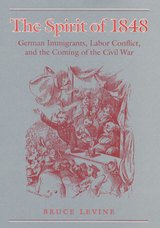
The Spirit of 1848 offers much new information and insight concerning craftwork, the nature of the antebellum labor movement (including the great New York City tailors' strike of 1850), the meaning of nativism, the significance of the push for land reform, the diverse character of the free-soil movement, and the popular appeals of both the Democratic and Republican parties.
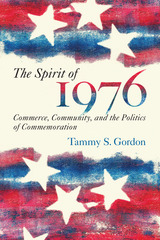
The end result of these competing efforts, Tammy S. Gordon shows, was a national celebration that reflected some common themes, including a mistrust of federal power, an embrace of decentralized authority, and a new cultural emphasis on the importance of the self. The American Revolution Bicentennial can thus be seen as both a product of the social and political changes of the 1960s and a harbinger of things to come. After 1976, the postwar myth of a consensus view of American history came to an end, ensuring that future national commemorations would continue to be contested.


Library of Congress subject headings for this publication:
Upfield, Arthur William, -- 1888-1964 -- Criticism and interpretation.
Detective and mystery stories, Australian -- History and criticism.
Bonaparte, Napoleon, Inspector (Fictitious character)
National characteristics, Australian, in literature.
Australia -- In literature.
Police in literature.
Crime in literature.

